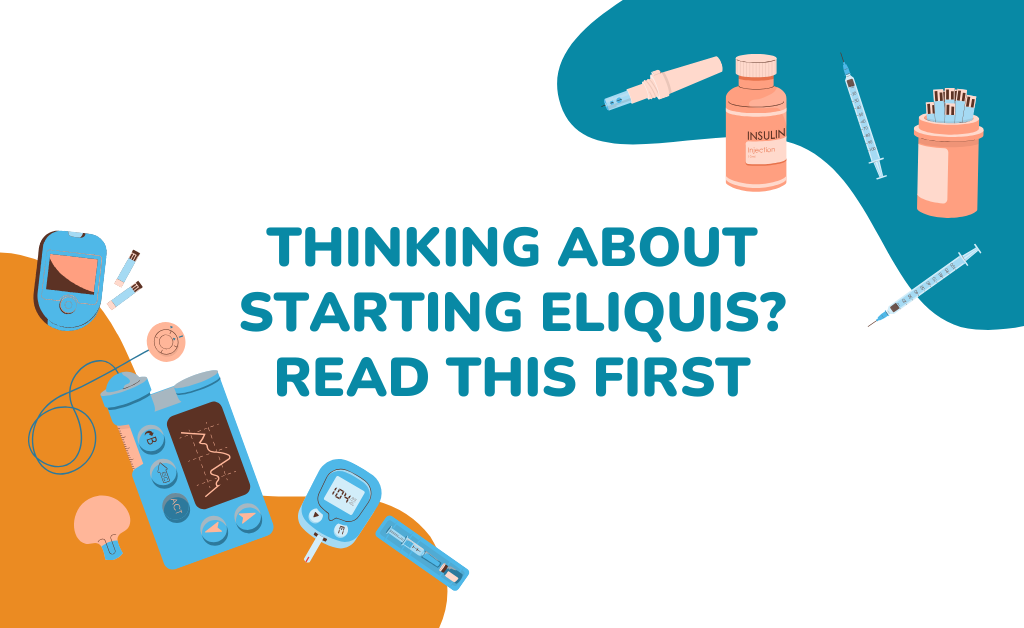Deciding to start a new medication can be overwhelming, especially when it’s related to your heart and blood health. If you’re starting Eliquis, understanding its purpose and effects is the first step toward using it safely and effectively. Eliquis (apixaban) is a prescription anticoagulant that helps reduce the risk of stroke and blood clots in people with conditions like atrial fibrillation, deep vein thrombosis (DVT), or after certain surgeries.
Eliquis offers added convenience for many people, as it doesn’t need the regular blood testing that older anticoagulants often require. But convenience doesn’t mean it’s without risks. Before starting Eliquis, it’s essential to discuss your full medical history with your doctor, especially if you have liver or kidney disease or if you’re on other medications that might interact. If you’re considering this medication, knowing how to take it properly and what side effects to watch for will go a long way in ensuring your safety. Read on to explore the essentials of using Eliquis the right way.
What is Eliquis, and how does it work?
Eliquis, also known by its generic name apixaban, is a prescription anticoagulant that helps prevent blood clots. It’s commonly used in patients with atrial fibrillation (not caused by a heart valve problem), those who’ve had knee or hip replacement surgery, or individuals at risk of deep vein thrombosis (DVT) and pulmonary embolism (PE). If you’re wondering how Eliquis works, it functions by blocking Factor Xa, an important protein in the blood clotting process. By inhibiting this factor, Eliquis reduces the formation of new clots without breaking down existing ones.
Many also ask, is Eliquis safe for seniors? The answer is generally yes—Eliquis is often prescribed for older adults due to its effectiveness and lower bleeding risk compared to some older blood thinners. However, seniors may require careful monitoring and dose adjustments based on kidney function and overall health.
Who Should or Shouldn’t Take Eliquis?
Eliquis may be a good choice for individuals who need a blood thinner that doesn’t require frequent blood tests. However, not everyone is a candidate. People with active bleeding, certain types of bleeding disorders, or severe liver problems should avoid using Eliquis. Those with kidney disease may need adjusted doses or alternative medications.
If you’re going to start Eliquis, your doctor will assess your medical history, current medications, and risk factors to ensure it’s safe for you. Pregnant women, nursing mothers, and individuals with a history of allergic reactions to similar drugs should also consult their healthcare provider carefully before taking Eliquis.
What to Expect When You Start Eliquis?
When you begin taking Eliquis, it’s important to know what changes you might notice and how your body may respond. Since Eliquis is a blood thinner, it’s essential to take it at the same time daily so that the medication stays balanced in your system. Unlike some older anticoagulants, Eliquis doesn’t require regular blood monitoring, which many patients find convenient.
If you’re starting Eliquis, your doctor will advise you on what to avoid, like certain over-the-counter painkillers, supplements, or high-risk activities that could cause injury. Remember, starting to use Eliquis is a step toward preventing serious complications like stroke or deep vein clots, but it comes with responsibilities to ensure safe and effective use.
Eliquis Side Effects and How to Manage Them
Like any medication, Eliquis may cause side effects, though not everyone experiences them. Some frequent side effects include easy bruising, light bleeding (such as nosebleeds or bleeding gums), feeling nauseous, and occasional dizziness. While these are often mild, some patients may encounter more serious effects like prolonged or heavy bleeding, blood in the urine or stool, or unexpected swelling.
If you notice any of these, seek medical advice immediately. To manage Eliquis side effects, avoid activities with a high risk of injury, and steer clear of medications like NSAIDs (e.g., ibuprofen) that can increase bleeding risk.
Where to Buy Eliquis Online and Ways to Save on Eliquis
If you’re wondering where to buy Eliquis online, it’s important to choose a reliable and certified pharmacy. One trusted option is LifeRx Pharmacy, a licensed Canadian online pharmacy website that offers genuine Eliquis at competitive prices.
Their platform allows you to easily upload your prescription and receive the medication directly at your doorstep, making it a convenient and safe option for many patients.
Lifestyle Tips: What to Avoid while on Eliquis
When using Eliquis, it’s essential to make a few lifestyle adjustments to stay safe and reduce the risk of complications. Avoid using over-the-counter pain relievers like ibuprofen or aspirin unless advised by your doctor, as they can increase the risk of bleeding. Limit alcohol intake, since alcohol can interfere with blood clotting and may heighten the effects of Eliquis.
Be cautious with activities that could lead to cuts, bruises, or injuries, such as contact sports or using sharp tools. If you’re going to start Eliquis, also inform your dentist or any healthcare provider before procedures, as special precautions may be needed.
When to Call Your Doctor: Warning Signs You Shouldn’t Ignore
While starting Eliquis, it’s crucial to stay alert for any warning signs that may indicate serious problems. Contact your doctor immediately if you experience unusual or heavy bleeding, such as blood in your urine or stool, prolonged nosebleeds, or coughing up blood.
If you have persistent dizziness, fainting, or severe abdominal pain, don’t delay in getting medical help. These symptoms should never be ignored when you’re on blood thinners like Eliquis, as early intervention can prevent serious health issues.
Ready to Start Eliquis? Here’s What to Do Next
If you’re ready to begin your treatment with Eliquis, the first step is to talk to your doctor or healthcare provider. They will review your medical history, assess your risk factors, and determine if Eliquis is the right choice for you. Once your doctor agrees, you’ll receive a prescription that you can fill at a trusted pharmacy website, online, or locally.
FAQs
Is Eliquis a blood thinner or an anticoagulant?
Eliquis is a type of medication that helps lower the risk of blood clots by keeping your blood flowing more smoothly. While often called a blood thinner, it doesn’t thin the blood but works by blocking specific clotting proteins like Factor Xa. This reduces the risk of harmful clots that can lead to strokes or other serious conditions.
How quickly does Eliquis start working?
Eliquis typically begins to take effect within a few hours, often between one and four, after you take it. It reaches its peak effect around 3 to 4 hours, providing effective prevention against blood clots. Because of this fast action, it helps reduce the risk of stroke and other clot-related problems soon after starting treatment.
Can I take Eliquis with food or on an empty stomach?
You can take Eliquis with or without food, as it is effective either way. Taking it with food may help reduce any mild stomach upset, but it does not affect how the medication works. Just be sure to take it consistently at the same times each day as prescribed by your doctor.
How long will I need to take Eliquis?
The length of time you need to take Eliquis depends on your medical condition and your doctor’s recommendation. Some people may need it short-term, such as after surgery, while others may require long-term use to prevent blood clots or stroke.
Is Eliquis safe for older adults?
Yes, Eliquis is usually considered safe for older adults and is commonly used to help lower the risk of strokes and blood clots in seniors. However, because older adults may have other health conditions or take multiple medications, doctors carefully monitor them for side effects and adjust doses if needed.
Can I stop taking Eliquis suddenly?
No, you should not stop taking Eliquis suddenly without consulting your doctor. Stopping it abruptly can increase your risk of serious blood clots, stroke, or other complications. Be sure to check with your healthcare provider before making any changes to your medication.
Do I need regular blood tests while using Eliquis?
Unlike some blood thinners, Eliquis usually does not require regular blood tests to monitor its effect. However, your doctor may periodically check your kidney function and overall health to ensure the medication is safe for you.
Can Eliquis cause internal bleeding?
Yes, Eliquis can increase the risk of internal bleeding because it affects your blood’s ability to clot. While serious bleeding is rare, it’s important to watch for signs like unusual bruising, blood in urine or stool, or severe headaches.
Can I travel while taking Eliquis?
Yes, you can travel while taking Eliquis, but it’s important to plan. Always keep your medication with you and store it in its original container. Stay hydrated, move around regularly during long trips, and inform your doctor about your travel plans to manage any potential risks.
What if I experience unusual bleeding or bruising?
If you experience unusual bleeding or bruising while taking Eliquis, contact your doctor right away. These could be signs of serious bleeding that needs prompt medical attention.


